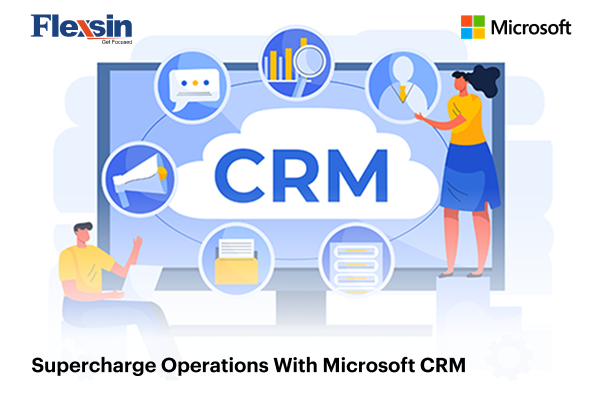Historically, Customer Relationship Management (CRM) systems served as digital repositories – storing customer data, tracking interactions, and managing sales pipelines. While functional, these systems often operated in silos, lacking integration with other business processes. This isolation led to fragmented customer views and inefficiencies in service delivery.
The business landscape has evolved, demanding more agile and interconnected systems. Modern enterprises require CRM solutions that not only store data but also provide actionable insights, automate workflows, and integrate seamlessly with other enterprise systems. This shift has positioned CRM as a strategic tool, central to customer engagement and business growth.
Microsoft Dynamics CRM has emerged as a leader in this new era of intelligent CRM solutions. Its robust architecture supports extensive customization, allowing businesses to tailor the platform to their unique needs. With capabilities like Microsoft CRM API integration, organizations can connect their CRM with various applications, enhancing data flow and operational efficiency.
1. Customization That Converts: Tailoring Microsoft CRM for Business Advantage
One-size-fits-all rarely fits anyone, especially in complex B2B ecosystems. With Microsoft CRM software development, businesses can go beyond out-of-the-box features and build custom modules that reflect real-world workflows.
Need a deal lifecycle tailored to your sales process? Or a case escalation module that aligns with your customer service SLAs? Microsoft CRM allows you to define entities, attributes, relationships, and business logic through custom plugins and workflow assemblies. That’s not just customization—it’s process orchestration at scale.
Technical insight:
Developers often use XRM development (eXtended Relationship Management) to create entities that are not customer-centric, like vendor onboarding or internal asset tracking. This stretches the core CRM platform into a company-wide application layer.
Role-Based Dashboards & Views – From Clutter to ClarityYour finance team doesn’t need to see marketing lead scoring. And your sales manager doesn’t want to be buried under support tickets.
With Microsoft CRM customization services, we create role-based dashboards that serve relevant KPIs to each team – sales, service, finance, and ops; so every user opens CRM and sees only what matters. You can also define custom views, grids, and forms using the Power Apps platform, driving precision and removing digital friction from daily operations.
Stat to consider:
According to Forrester, custom CRM dashboards improve user productivity by up to 22%, thanks to reduced cognitive load and decision latency.
Seamless Integrations: APIs That Eliminate SilosIntegrating CRM with core systems like ERPs, marketing automation platforms, and support desks is no longer optional, it’s foundational.
Through Microsoft CRM API integration, we stitch Microsoft CRM into your digital fabric using RESTful APIs, OData endpoints, and middleware connectors (like Azure Logic Apps or Power Automate). That means real-time data sharing, two-way sync, and zero duplicate entries.
Example:
For a logistics client, we integrated Microsoft Dynamics CRM with SAP ERP using custom middleware. This automated delivery status updates inside CRM records, reducing manual coordination time by 40%.

2. From Workflows to Wow: Automating with Intelligence Inside Microsoft CRM
Manual processes are the quiet killers of scale. But with Microsoft CRM software development, we transform routine tasks into self-operating sequences. Using built-in tools like Power Automate and native CRM workflows, businesses can:
- Auto-assign leads based on geography or industry
- Trigger emails or SMS on deal stage changes
- Generate service tickets based on sentiment from forms
This isn’t just time-saving, it’s consistency at scale, and consistency breeds trust.
Pro Tip:For advanced use cases, custom plugin assemblies in C# can be deployed server-side to trigger automation that standard workflows can’t handle (e.g., real-time currency conversions or CRM-to-ERP data mirroring).
AI Insights and Predictive Scoring: Data That Thinks AheadData is only as useful as your ability to act on it. With Microsoft’s AI Builder and Dynamics 365 Customer Insights, you can infuse predictive intelligence directly into your CRM.
Sales reps can now:
- See lead scores based on historical conversion patterns
- Get AI-suggested actions to close deals faster
- Auto-prioritize tasks based on urgency or risk
Stat Alert: Companies using predictive lead scoring see an average 15% increase in win rates, according to Nucleus Research.
With Microsoft CRM customization services, we tailor AI models based on your dataset, so the insights are as yours as your customers are.
- Embedded Generative AI: Smarter Interactions, Faster Responses
- Summarized opportunity notes in seconds
- Auto-generated email responses for service cases
- Insightful recaps after sales calls
This is a Generative AI meeting operational context. It’s not generic; it’s personalized, contextual, and embedded.
Tech Insight:Copilot uses Azure OpenAI Service for GPT-based responses and fine-tunes prompts using CRM context like entity metadata, timeline history, and customer records.
3. Strategic Execution: Turning Microsoft CRM into a Competitive Advantage
Too often, Microsoft CRM implementations start with a feature list instead of a business problem statement. That’s a mistake.
Before a single field is customized or a plugin coded, we work with clients to conduct process discovery workshops. This helps map:
- Pain points across departments
- Redundant or broken workflows
- Key integration touchpoints
This discovery is where Microsoft CRM software development becomes a strategic exercise, not just technical.
Use Case:For a professional services firm, aligning CRM workflows with their client onboarding process led to a 30% faster onboarding cycle and improved compliance across jurisdictions.
Phased Implementation: Avoiding the “Big Bang” TrapTrying to launch everything at once? That’s a recipe for adoption failure.
We recommend a modular rollout approach, where Phase 1 focuses on high-impact use cases (e.g., lead management or service ticket automation), followed by layered deployments for:
- Custom dashboards and KPIs
- Marketing automation flows
- Financial integrations via Microsoft CRM accounting software solutions
- Each phase is data-informed, user-tested, and refined before scaling.
Measuring What Matters: KPIs That Go Beyond LoginsWe don’t measure success by how many users logged in last month.
Instead, we track:
- Lead-to-close velocity improvements
- CSAT uplift tied to CRM insights
- Revenue influenced by CRM-tracked interactions
- Automation coverage % (tasks removed from manual execution)
These are the metrics that reflect business transformation, not just system usage.
4. Your CRM Isn’t a Tool – It’s Your Growth Strategy in Motion
Microsoft Dynamics CRM is no longer just a system of record. It’s a system of intelligence, execution, and differentiation. But only when treated as a living, evolving business asset, not a one-off deployment.
With the right blend of Microsoft CRM software development, API integration, customization services, and intelligent automation, your CRM doesn’t just support your business – it accelerates it.
Whether you’re streamlining lead management, integrating accounting workflows, or building AI-powered customer journeys, success lies in aligning technology with strategy, and execution with expertise.
Let’s Build a Smarter CRM, Together
At Flexsin, we don’t just customize Microsoft CRM, we architect business outcomes.
From tailor-made modules and workflow automation to Microsoft CRM API integration and Microsoft CRM accounting software solutions, our end-to-end Microsoft CRM software development services ensure you’re not just keeping up with digital transformation – you’re leading it.
We have built forward-looking, role-aware Dynamics CRM with AI-driven scoring, embedded Copilot, and cross-system automation to supercharge sales growth for AIDA Software, My Compliance, Sales Scripter, PapiPay, and more hi-tech businesses.
Explore Flexsin’s Microsoft CRM Services and discover how we help businesses turn CRM into a competitive edge.


 Sudhir K Srivastava
Sudhir K Srivastava